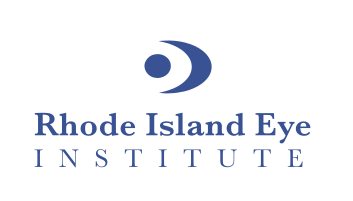
As spring unfolds and the flowers bloom, so does the season of sniffles and red eyes, especially for our little ones. Seasonal allergies can turn fun outdoor play into a discomforting ordeal. But how exactly do these seasonal changes affect children’s eye health?
This article delves into allergic conjunctivitis in children — its symptoms, impacts, and treatments — highlighting how proactive care can make all the difference. At Rhode Island Eye Institute, we’re here to help you understand these challenges and ensure your child enjoys every season to the fullest.
Understanding Seasonal Allergies in Children
Seasonal allergies, often caused by pollen from trees, grasses, and weeds, can lead to allergic conjunctivitis in children. Red, itchy, and watery eyes characterize this condition, as the allergens trigger an immune response that causes inflammation. Unlike bacterial or viral conjunctivitis, allergic conjunctivitis is not contagious but can be extremely uncomfortable and may significantly impact a child's daily activities.
Symptoms of Allergic Conjunctivitis
Children with eye allergies may experience a range of symptoms, including:
- Redness in the whites of the eyes
- Itchy eyes, often leading to excessive rubbing
- Tearing or watery discharge, which is the body's response to irritation
- Sensitivity to light, a common reaction to severe itching and inflammation
These symptoms can significantly affect a child’s performance in school and their ability to participate in outdoor activities.
Preventing and Treating Seasonal Allergies
A proactive and comprehensive approach is essential to prevent eye allergies in children.
- Outdoor Precautions: Encourage children to wear sunglasses or protective eyewear to shield their eyes from allergens when playing outside. This can reduce the amount of pollen that comes into direct contact with the eye surface.
- Optimize Indoor Environments: Consider using hypoallergenic filters in your HVAC system to capture finer particles besides air purifiers. Regular cleaning of bedding, drapes, and other fabric surfaces can also minimize allergen accumulation in the home.
- Personal Hygiene: Teach children the importance of washing their hands frequently and avoiding rubbing their eyes. Good hygiene habits can significantly reduce the transfer of allergens to the eyes.
- Diet and Hydration: Ensure your child maintains a healthy diet rich in omega-3 fatty acids and vitamin C, which can help manage inflammation associated with allergies. Drinking plenty of water can also assist in maintaining the natural moisture of the eyes.
- Monitor Pollen Counts: Stay informed about daily pollen levels using local weather channels or allergy apps. Plan outdoor activities when pollen counts are lower, typically on rainy, cloudy, or windless days.
The Role of Pediatric Ophthalmologists
Pediatric ophthalmologists specialize in diagnosing and treating eye conditions affecting children, including those caused by allergies. They can offer tailored treatment plans that may include stronger medications unavailable over the counter or advice on long-term management strategies to prevent future episodes.
When to Visit a Pediatric Ophthalmologist
It’s advisable to consult a pediatric ophthalmologist if:
- Symptoms Are Severe: When basic interventions do not relieve symptoms
- Vision is Affected: If the child complains of blurred vision or struggles to see clearly
- Symptoms Are Recurrent: Symptoms return every allergy season or persist throughout the year
Eye Care for Children in Rhode Island and Southern Massachusetts
Rhode Island Eye Institute’s pediatric ophthalmologists can provide comprehensive care for the unique needs of children. Don’t let seasonal allergies keep your child from seeing the world clearly and participating fully in life. Schedule an appointment at one of our locations for expert care and support in managing your child’s eye health during allergy season and beyond.
